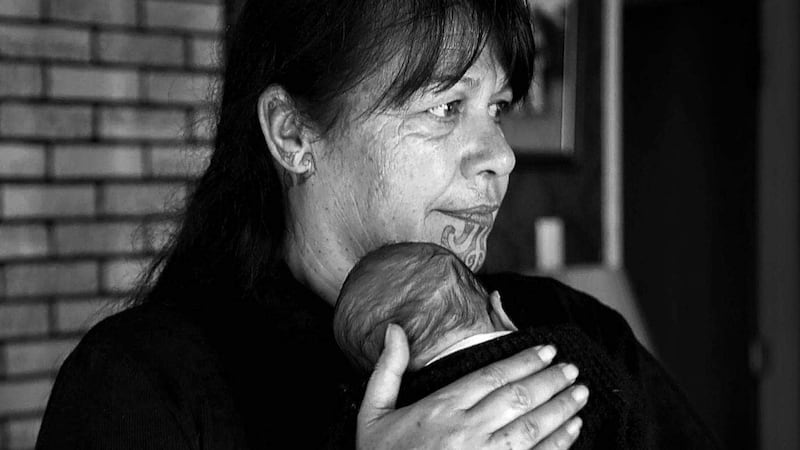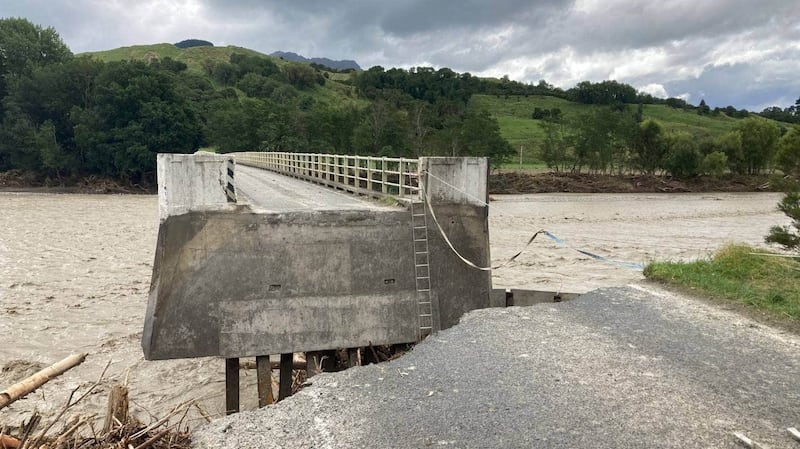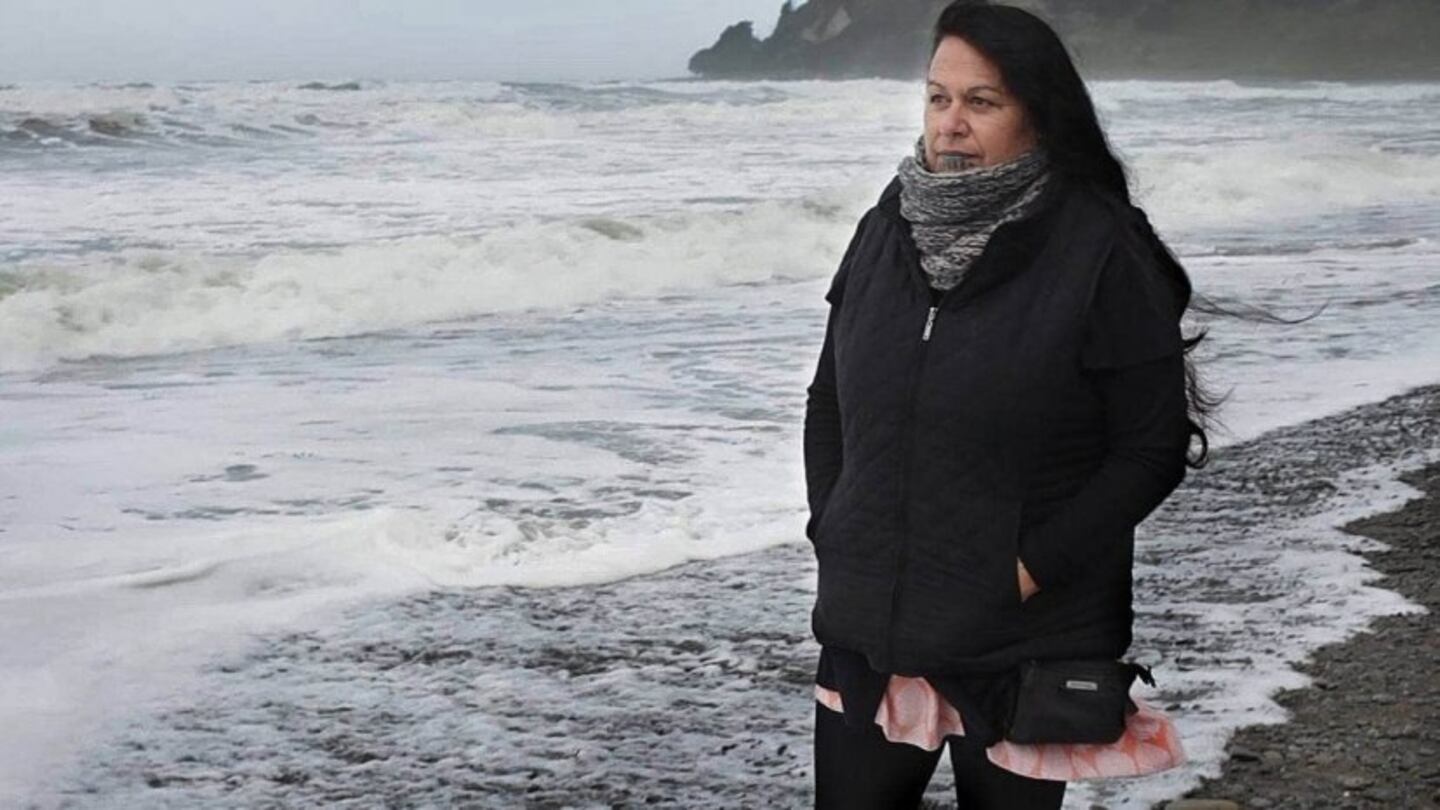Midwife Corrina Parata had to walk through slips and wash-outs to get supplies to a client. Photo / Warwick Smith / Stuff
By Tony Wall, Stuff
Corrina Parata is the only midwife for the East Cape. When Cyclone Gabrielle hit, she was cut off from her hapū clients. When a distress call came through on Sunday, she packed her bag and started walking.
The call came on Sunday – a 23-week pregnant woman in the remote Mangahauini Valley south of Te Puia Springs had completely run out of kai.
A week after Cyclone Gabrielle devastated the area, the woman remained cut off because of slips and road wash-outs.
Corrina Parata decided she’d have to walk to the woman, who also has a toddler. So she put some basic essentials in a backpack and set off, filming some of the journey on her phone.
“There was no road for part of the journey, I definitely had to climb up some tracks and through some washouts,” she says. “I'd get as far as I could and then go inland.”
Eventually, after about an hour of walking, she came to a work crew clearing the road. One of them was the woman’s partner, so she was able to pass over the bag.
Parata’s son was also part of the road crew and he gave her a “growling” for making such a dangerous journey.
Parata says she was able to make contact with the woman by phone and she was OK.
“A huge difficulty at the beginning of the cyclone was actually being able to communicate because all comms were down, so for a number of days I didn’t know how women and their babies were, and that was quite upsetting.
“The stress levels and anxiety levels can pose problems for expectant mothers. It’s been quite concerning not being able to see women with high-risk pregnancies on a normal, regular basis.”
She’s managed to reach some women in a four-wheel drive.
“As the midwife, you have to increase your level of skill. You have to provide the care when normally they would be seen at a higher-level hospital, until such time we can fly them out.”

Corrina Parata says it’s stressful not knowing how her clients are doing. Photo / Warwick Smith / Stuff
Meanwhile, the co-ordinator for Te Puia Springs Hospital services, Ra Campbell, says being without power and running water for a week is becoming a health issue.
“We’ve got no running water, no toilets, nowhere to wash. Everyone’s starting to get diarrhoea, vomiting. Everything like that is starting now.”
The road to Ruatoria opened over the weekend, she says, but many whānau have no fuel to get there.
There are 130 households in the area, she says, and some of them are doing it tough. They’ve been told it could be another five days before power is restored.
Campbell says doctors and staff who live in Tokomaru Bay, which has been cut off from Te Puia Springs, managed to get to work on quad bikes.
“They came over the hill through muddy tracks and everything, just to get to work.
Parata says it took several days for supplies to reach the community. The local shop had allowed whānau to take food.
“A lot of our whānau have been tested through these times, I’m encouraging them to come out and not be too whakama [ashamed] and ask for the support that’s available.”
Meanwhile, further north in the Makarika Valley near Ruatoria, Stacey McClutchie and her 5-month-old baby remain cut off from civilisation, a week after the cyclone.

This bridge to Makarika Valley has been repaired, but some families remain cut off by another washout. Photo / Stuff
While a bridge that was partly washed out has now been repaired, allowing other residents to drive into town, McClutchie and her whānau live further out, past another huge washout.
“There’s still no power here, except my house as we run off solar. We’ve all been trying to help each other and were dropped off supplies like food, gas and generators to keep us going.
“I’m lucky that my mum dropped off nappies and baby food to civil defence [in Ruatoria] which they delivered with the food yesterday [by helicopter].”
“It doesn’t look like we’ll be getting out any time soon. We have multiple families with kids. But we are all safe and well and grateful Cyclone Gabrielle only took our road.”
- Stuff


